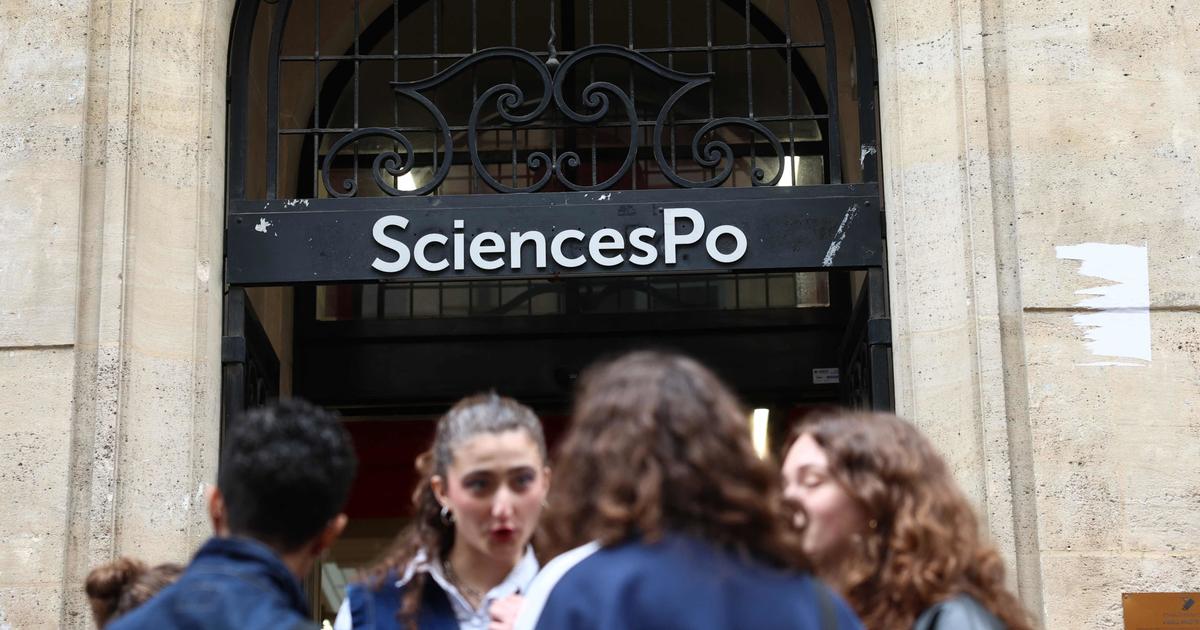For many months, students were forced to study online within their four walls.
Now there is again a lot of presence at the universities.
How do young people react to this?
Mannheim / Heidelberg - The universities in the southwest urgently urge students to return to campus after one and a half years of online teaching.
Because during the long dry spell without direct contact with teachers and fellow students, some students seem to have lost their way.
At most universities, studies begin on this Monday.
"This winter semester it is worthwhile for our students to come back to campus", the Hohenheim rector and head of the State Rectors' Conference (LRK) Stephan Dabbert woos the young people.
His promise: On average, the courses at the nine universities in the state will mostly take place in attendance again.
Science Minister Theresia Bauer (Greens) is also trying to whet the aspiring academics' appetite for the campus again and raves about “shared university life - with encounters and exchanges, getting to know new people, everything that makes up a degree”.
This encouragement is necessary, as the trend is becoming apparent at the University of Mannheim, which was launched at the beginning of September. The student representatives there have observed that especially the higher semesters have not yet found their way back to seminars and lecture halls. “You can then study digitally from your bed or table in a shared apartment,” says Asta boss Frederik Blank. According to the rector of Mannheim, Thomas Puhl, around ten percent of the students have withdrawn from the campus without a valid reason.
It doesn't help much if 40 percent of the events are exclusively digital, says student representative Blank.
Freedom of teaching should not lead to lecturers only teaching online.
In Mannheim, proof must therefore be provided from the summer semester that digital events have added value compared to the face-to-face form.
"We are not a distance-learning university and do not want to become one," emphasizes Blank.
It looks completely different at the University of Heidelberg;
In principle, all course events are held there in person, online teaching formats are only continued as a supplement.
Rector Bernhard Eitel emphasizes that Heidelberg is a research university: "That does not mean passing on knowledge, but working together on knowledge."
The 3G rule applies at the state universities, which restricts access to those who have been vaccinated, those who have recovered and who have been tested. However, according to the LRK, dealing with the pandemic also depends heavily on the subjects. The major lectures in economics, for example, would still have to take place either in hybrid form - i.e. both online and face-to-face - or in completely digital form. On the other hand, there are also courses such as food chemistry, which, due to the compulsory practical components, were continuously taught in attendance even during the lockdown.
Masks are required in the lecture halls and event rooms. The mask can only be removed at a minimum distance of 1.5 meters. LRK boss Dabbert emphasizes: “If we always guarantee that in the lecture hall, most students would have to stay outside, which we definitely don't want.” However, Asta boss Blank hears complaints about a lack of proportionality on this point. “Even at university, students want to be able to sit across from each other without a mask and talk like in their free time in bars or restaurants,” says Blank.
The Starter University Mannheim serves as a guide for the vaccination coverage of the students: 98 percent of the students who come to campus are vaccinated there, one percent have recovered - and only one percent have been tested.
These figures make Dabbert confident that the elimination of the free tests will not cause any major problems.
Some universities also offer temporary free tests for those who have no medical reasons against vaccination.
also read
Universities control 3G rules differently: Association has questions
The Corona crisis was a tough time for many students.
Even the Prime Minister apologized for not having enough on the screen.
But now life is coming back to the university campus.
Universities control 3G rules differently: Association has questions
Winter semester at universities with more presence and 3G
After three "pandemic semesters", the new winter semester starts for thousands of students at the NRW universities on Friday - again with more presence and 3G controls: whether with vaccination vignettes on the university ID, via app or "boarding" like at the airport .
Winter semester at universities with more presence and 3G
Hanover: Bracelets for vaccinated and convalescent people at universities
In yellow, green or colored - at several universities in Hanover, students and employees can use a wristband to indicate a corona-related vaccination and recovery status.
The dean of the Faculty of Mechanical Engineering and Bioprocess Engineering at the Hanover University of Applied Sciences, Professor Wolfgang Strache, said the ribbon could have reduced the inspection times by around 75 percent.
Hanover: wristbands for vaccinated and convalescent people at universities
According to Dabbert, the universities control compliance with the rules with a great deal of effort and a lot of staff, including external service providers and student “health helpers”.
Rector Puhl is the contact tracking with the storage of names for each individual course a thorn in the side.
Because if the vaccination rate is high, the health department already refrains from contacting the other event participants in the event of individual infections from students themselves or in their environment.
One of the constants of student life this winter semester is the housing shortage: In Stuttgart, as every year, the student union and the landowner association raise awareness of renting out to students.
At the Heidelberg student union, ten to twelve applications for a dormitory place are received at the Heidelberg location - similar to other university cities, as a spokeswoman explains.
And the pressure could grow: "We know that some students are currently still commuting between home and where they study." Dpa









